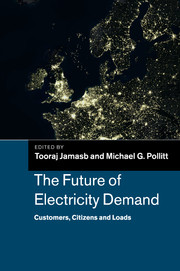Book contents
- Frontmatter
- Contents
- List of Figures
- List of Tables
- List of Boxes
- List of Contributors
- Foreword
- Preface
- Acknowledgements
- Introduction and overview of the chapters
- Part I The economics
- Part II Technology
- Part III Social dimensions
- 9 From citizen to consumer: energy policy and public attitudes in the UK
- 10 The local dimension of energy
- 11 Centralization, decentralization and the scales in between: what role might they play in the UK energy system?
- 12 Equity, fuel poverty and demand (maintaining affordability with sustainability and security of supply)
- 13 Energy spending and vulnerable households
- Part IV Policy and regulation
- Index
- References
13 - Energy spending and vulnerable households
from Part III - Social dimensions
Published online by Cambridge University Press: 05 March 2014
- Frontmatter
- Contents
- List of Figures
- List of Tables
- List of Boxes
- List of Contributors
- Foreword
- Preface
- Acknowledgements
- Introduction and overview of the chapters
- Part I The economics
- Part II Technology
- Part III Social dimensions
- 9 From citizen to consumer: energy policy and public attitudes in the UK
- 10 The local dimension of energy
- 11 Centralization, decentralization and the scales in between: what role might they play in the UK energy system?
- 12 Equity, fuel poverty and demand (maintaining affordability with sustainability and security of supply)
- 13 Energy spending and vulnerable households
- Part IV Policy and regulation
- Index
- References
Summary
Introduction
As with most goods and services there are significant variations in the energy use and spending levels among different households. Most of these differences can be explained by specific household characteristics such as income, the number of family members, the type and size of a family's home, or geography. As a consequence, the effect of changes in energy prices, incomes, or energy policy measures on household energy spending can vary across different types of families. In recent years, fuel poverty among vulnerable households and energy equity has occupied an important place in the energy policy debate.
In this chapter we focus on the UK. A discussion of the significance of the issue in other countries can be found in the previous chapter, by Waddams Price, in this book. In Britain, according to the official definition, households that spend more than 10 per cent of their incomes on energy are described as ‘fuel poor’ and having difficulties in warming their homes adequately. The fuel poverty ratio is calculated as fuel costs (usage multiplied with price) divided by income. If this ratio is larger than 0.1, a household is considered as being fuel poor (DECC, 2009c).
- Type
- Chapter
- Information
- The Future of Electricity DemandCustomers, Citizens and Loads, pp. 318 - 334Publisher: Cambridge University PressPrint publication year: 2011
References
- 4
- Cited by

